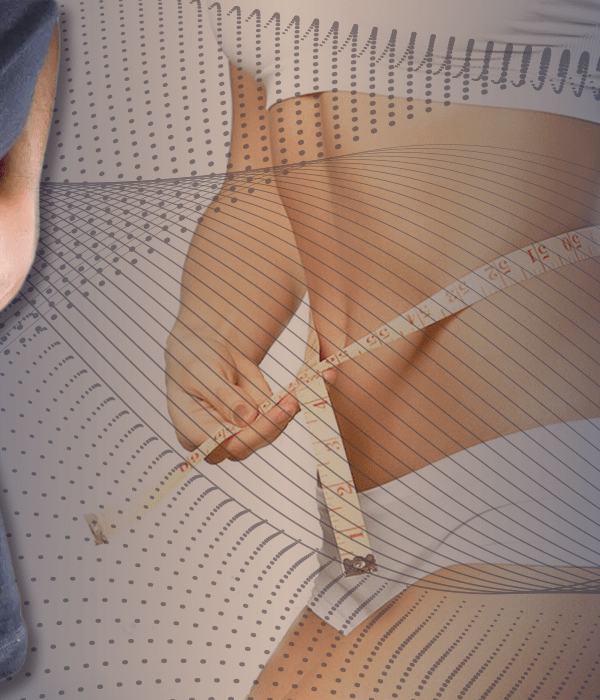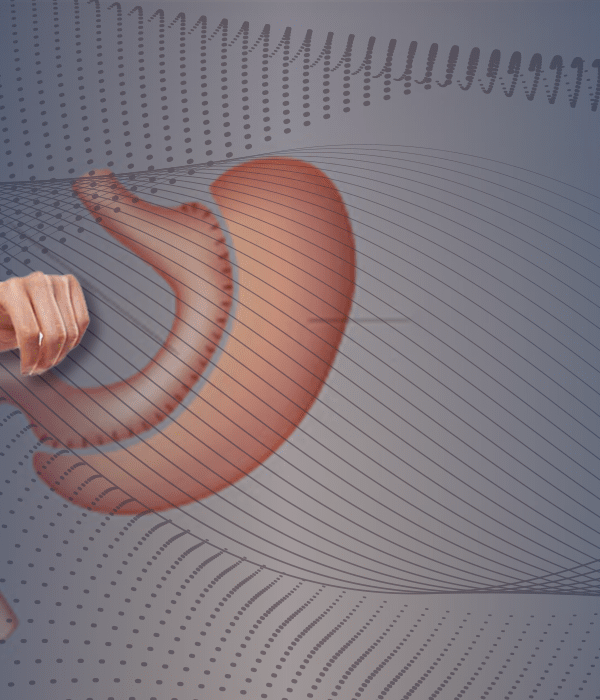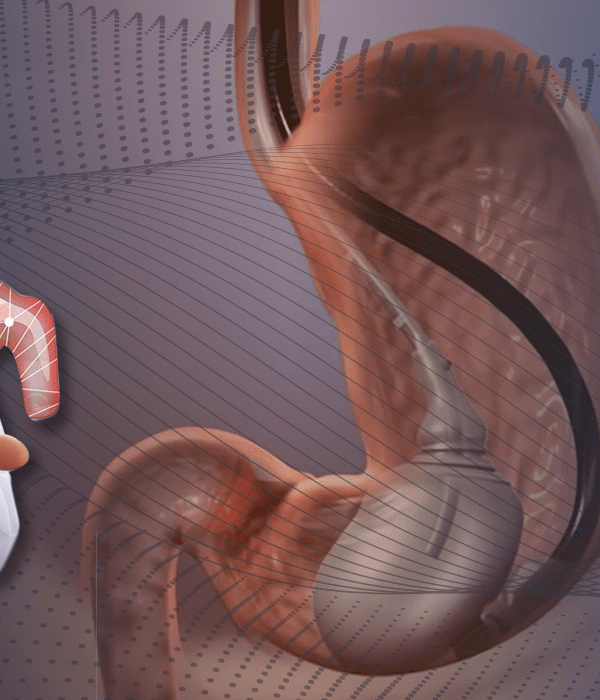
The condition is caused by genetics and environmental factors and sometimes changes in the diet alone cannot improve the situation. In this case, doctors may resort to some other methods such as medication and surgery.
Body Mass Index (BMI)
Body fat cannot be measured directly in an easy way. Therefore, the Body Mass Index is commonly used in order to measure body fat. Body Mass Index is a tool used by healthcare providers to evaluate whether a person’s weight is appropriate for their height. Body Mass Index is measured by dividing a person’s body weight to the square of their body height. This is calculated independently of the person’s gender and age. After the calculation, individuals learn if they are classified as underweight, normal weight, obese or morbidly obese. A Body Mass Index between 25 and 29.9 means that the person has excess weight. A Body Mass Index of 30 or higher means that the person might have obesity.
Here are the values determined by the World Health Organization (WHO):
- BMI less than 18.5 are underweight
- BMI between 18.5 and 24.9 normal weight
- BMI between 25 and 29.9 overweight
- BMI between 30 and 34.9 class 1 obesity
- BMI between 35 and 39.9 class 2 obesity
- BMI 40 or higher class 3 morbid obese
- BMI 50 or higher super obese.
While diagnosing obesity, the location of the fat is also an important fact, just like the amount of fat. If the person has more body fat around their belly than other parts, it is possible that they will be diagnosed with obesity. This is why a waist measurement is a must for a correct diagnosis. However, keep in mind that Body Mass Index is not a percentage of body fat and it is not enough for a diagnosis of obesity. You should see your healthcare providers in order to decide whether you have obesity. There are also some other factors to determine how healthy a person is considering their weight and body shape, such as the ratio of waist to hip size (WHR) and waist to height ratio (WHtR).
People who have obesity and excess weight may also have an increased risk of developing some health problems such as metabolic syndrome, arthritis, and some types of cancer. Metabolic syndrome consists of a collection of health problems, such as high blood pressure, type 2 diabetes, and cardiovascular disease.
What Are The Risks Associated With Obesity?
Having excess weight may also cause unwanted disturbance to your body and other health problems. These obesity-related conditions may lower your quality of life. Therefore, it is important that you consult your healthcare providers about such conditions. Some of these obesity-related conditions may be potentially serious. For example, obesity causes you to be prone to high blood pressure and abnormal cholesterol levels and these conditions are important risk factors for heart disease and strokes. Having obesity may affect the use of insulin to control blood sugar levels in your body and this increases the risk of insulin resistance and diabetes. Obesity may also open the doors wide for certain cancer types such as uterus, cervix, endometrial, ovary, breast, colon, rectum, esophagus, liver, gallbladder, pancreas, kidney, and prostate cancer. It may lead to some digestive related health problems such as heartburn, gallbladder disease, and liver problems. In women, it may cause gynecological and sexual problems such as infertility and irregular periods, and also erectile dysfunction in men. People who have obesity are more prone to sleep apnea, during which breathing repeatedly stops and starts while sleeping. Obesity might increase the pressure on some joints that bear weight in the body and this factor might lead to complications such as osteoarthritis. It can also lead to psychological disorders such as depression and anxiety.
Obesity may decrease your quality of life in every way. You may not feel as confident as before and you may fall behind in some enjoyable activities.
What Are The Causes Of Obesity?
In general, obesity is caused by a combination of factors such as genetics, environment, personal diet, and exercise habits. There are genetic, behavioral, metabolic, and hormonal influences affecting the body weight, however, overall, obesity is caused when people take more calories than they can burn through daily activities and exercise. When the body is not able to burn those calories, it stores them as fat.
Even though there are a lot of reasons that some people cannot avoid obesity, even the smallest weight loss can help improve or prevent obesity-related conditions. Changing your diet, increasing your daily physical activities, and changing your behavior may help dramatically with weight loss. Some other options for the treatment of obesity are medications and weight-loss surgeries.
There are some causes of obesity that need to be reckoned with:
- Appetite hormones are one of these causes; the human body has hormones that tell your brain when you are hungry or full, such as ghrelin the hunger hormone, and leptin the satiety hormone. When these hormones do not work well, it may cause excess weightand obesity.
- Another one of the causes is consuming more calories than the body needs. As mentioned before, when someone takes in more calories than they burn through the day their body will restore the fat and this will lead to excess weightand obesity.
- People who lead a sedentary lifestyle are prone to obesity. If you are working in an office job that does not require physical labor or driving to places instead of walking or cycling it is likely that you will gain weight.
- Another cause of weight gain and obesity is not getting enough sleep, since it may lead to some hormonal changes that will increase your appetite. When you do not get enough sleep your body will produce ghrelin, also known as the hunger hormone. This lack of sleep will also cause your body to produce less leptin, also known as the satiety hormone.
- Some medications such as atypical antipsychotics, especially olanzapine, quetiapine, and risperidone; anticonvulsants and mood stabilizers, and specifically gabapentin; hypoglycemic medications, such as tolbutamide; glucocorticoids used to treat rheumatoid arthritis; and some antidepressants can also lead to weight gain.
- Another important cause of obesity is genetics. Fat-mass and obesity-associated gene, FTO in short, is the gene that is responsible for weight gain and obesity. It is recorded that there is a link between this gene and behaviors that lead to obesity, a higher food intake with the preference for high-calorie foods, and impaired ability in feeling satiety.
There are a lot of factors that play a role in weight gain and the development of obesity. Usually, a healthy diet and regular exercise will be enough to reduce the risk of developing obesity. However, it might be harder for people who have a genetic susceptibility to obesity.
Diagnosis And Treatment Of Obesity
In order to diagnose obesity, multiple doctors work together. Patients are examined by endocrine specialists, nutritionists, psychiatry specialists, training consultants, and physical therapists. If doctors decide that it is necessary, patients are also examined by cardiologists, chest disease specialists, and general surgery specialists. During the examination process, doctors measure the patient’s Body Mass Index and waist. Then, they measure the patient’s blood pressure, blood sugar, and glucose levels. They make some blood and urine tests in order to measure the fat level in the patient’s blood. They also examine the liver, kidney, and thyroid functions of the patient. After this examination, a correct diagnosis is made.
The patients are examined thoroughly in order to detect any other potential obesity-related conditions. Most of the patients who have obesity also experience high blood sugar, high blood pressure, coronary diseases, respiratory problems, sleep apnea, extreme fatigue, stress, hormonal disorders, and digestive disorders. Once obesity and other health problems are diagnosed, the right treatment for the patient is decided. There are several options for the treatment of obesity such as special diets, exercise programs, and medication treatments. However, some patients who have obesity may not succeed in weight loss even with an appropriate diet, exercise program, or medications. In such a situation, doctors resort to surgical treatment. This treatment is considered suitable for patients who have class 2 or a higher type of obesity. The main purpose of bariatric surgery is to help patients with weight loss by changing the way their stomach functions. There are different types of bariatric surgery; these types include Adjustable Gastric Band, Laparoscopic Sleeve Gastrectomy, Gastric Bypass Surgery, and The Biliopancreatic Diversion with Duodenal Switch. The method of treatment is decided after the necessary examination and tests.
Bariatric Surgery: A Permanent Weight Loss Method In Obesity Treatment
When patients with a Body Mass Index of 30 or higher are not able to lose weight by changing their diet and exercise habits or medications, it may lead to serious health problems. Therefore, doctors decide to perform a surgical procedure on them. This procedure is called Bariatric Surgery or Obesity Surgery. Bariatric Surgery plays a significant role in the treatment of obesity, in that it reduces the risks of other health problems while immensely helping the patients lose their excess weight. It is recorded that patients who have had bariatric surgery are less prone to types of cancer that are related to overweight than others who have not had such surgery. This is because bariatric surgery guarantees to lose about 80 percent of the excess weight provided that the patients make necessary lifestyle changes, while diet and exercise guarantee to lose only 7 to 10 percent of the excess weight.
Who Is A Candidate For Bariatric Surgery?
Before bariatric surgery, a lot of factors such as eating and drinking habits and lifestyle of the patient are taken into consideration. There are several conditions for patients to qualify as a candidate for bariatric surgery. Usually, patients between the ages of 18 and 60 are considered suitable for bariatric surgery. In order to undergo bariatric surgery, patients must have a Body Mass Index of 30 or higher and have been suffering from obesity for at least 5 years despite trying the diet, exercise, and medication. They should be willing to work with the healthcare team during the post-operative period and to dedicate themselves to a new lifestyle. Patients also should not be suffering from any condition that will prevent the surgical operation such as endocrine diseases. They should not be addicted to substances like alcohol or drugs.
If you have any concerns about obesity-related conditions, consult with your doctor about your situation. Your doctor will help you evaluate and understand your situation and talk about your weight loss options.
As mentioned before, there are different types of bariatric surgery and your doctor will decide which one is appropriate for you. So what are these bariatric surgery types used for treating obesity?
Adjustable Gastric Band
This method, commonly known as the Gastric Band, involves placing an inflatable band around the upper part of the stomach and creating a small pouch above the Gastric Band. This newly created small pouch leads to a feeling of fullness for a longer time with less food, depending on the size of the opening between the small pouch and the rest of the stomach. The size of the stomach opening can be adjusted by injecting sterile saline to the Gastric Band. This adjustment is done gradually with repeated fillings over time. The Gastric Band does not cause malabsorption of the food, which means that the food is digested and absorbed naturally. Overall, the Gastric Band helps decrease appetite and the number of calories that are taken.
An adjustable Gastric Band reduces the amount of food that the stomach holds and ensures weight loss about 40 to 50 percent of the excess weight. It has the lowest rate of risks and complications among bariatric surgery types and the lowest risk of supplement deficiencies. Adjustable Gastric Band does not require a long hospital stay; in fact, most of the patients are discharged the same day they have the surgery, and others are discharged within 24 hours. It does not involve cutting the stomach or rerouting the intestines and it is a reversible procedure.
However, weight loss after Adjustable Gastric Band operation may be slower than other bariatric surgery types. The Gastric Band operation also requires the band, an extraneous object, to remain inside the body and this may lead to slipping of the band or band erosion into the stomach, however, this is very rare. It may also cause dilation in the esophagus if the patient eats too much. A small percentage of the patients may have problems involving the band, tube, or port. Most of the patients fail to lose at least 50 percent of their excess weight, unlike other popular bariatric surgeries. This is why it has the highest rate of re-operation and requires strict lifestyle changes postoperative follow-up visits after the operation.
Some bariatric surgery types, such as Adjustable Gastric Band, have lost their popularity. Recently, the most popular and effective type of bariatric surgery is gastric sleeve surgery, also known as laparoscopic sleeve gastrectomy. The most essential part of bariatric surgery operations is the postoperative part when the patients are expected to adopt a new lifestyle involving regular exercise and a low carbohydrate-high protein diet by the guidance of a nutritionist. Patients will need to change the way they eat for the rest of their life and to get multivitamin, calcium, and vitamin D supports.
Laparoscopic Sleeve Gastrectomy (Gastric Sleeve Surgery)
The Laparoscopic Sleeve Gastrectomy, also known as Gastric Sleeve Surgery, is a type of bariatric surgery that involves removing about 80 percent of the stomach and leaving a small pouch that looks like a banana. The main effect of Laparoscopic Sleeve Gastrectomy is changing the levels of hormones that are responsible for hunger, fullness, and blood glucose. Also, the small pouch with a much smaller volume that is left causes significantly less food intake, and this way the patient takes fewer calories.
When we take short term results into consideration, it is safe to say that The Laparoscopic Sleeve Gastrectomy is as effective as the Roux-en-Y Gastric Bypass, which is an older method. The Laparoscopic Sleeve Gastrectomy improves weight loss and other obesity-related conditions well enough as the Roux-en-Y Gastric Bypass. It is also recorded that the gastric sleeve surgery, just like gastric bypass, is effective in improving type 2 diabetes. This effect of gastric sleeve surgery is independent of weight loss. Shortly after the gastric sleeve surgery, even before the weight loss starts, high blood sugar level is reduced to normal and drugs or insulin, which are used in type 2 diabetes, are discontinued temporarily or permanently. Moreover, the rates of risks and complications of gastric sleeve surgery are lower compared to the gastric bypass surgery. These rates are between the complication rates of Adjustable Gastric Band and the Roux-en-Y Gastric Bypass.
Advantages And Disadvantages
The Laparoscopic Sleeve Gastrectomy owes its popularity to the fact that it ensures losing 50 to 60 percent of body weight shortly after the operation. Also, it does not require rerouting the gastrointestinal system, so there is no need to stay in the hospital for a long period of time. It significantly helps patients lose weight by restricting the amount of food their stomach can hold. Comparative studies show that there is almost no difference in the effectiveness of The Laparoscopic Sleeve Gastrectomy and the Roux-en-Y Gastric Bypass. Gastric sleeve surgery does not require any extraneous objects to stay in your body nor bypass and re-routing of the digestive system. It does not require a long period of staying in the hospital, usually no more than 2 days. It changes your hormones in a good way that will suppress hunger, reduce appetite, and improve satiety.
However, patients should keep in mind that there is no going back after having the Laparoscopic Sleeve Gastrectomy since it is a non-reversible operation. Also, they should be expecting vitamin and mineral deficiencies in the long term and take precautions in order to stay healthy. Plus it does have a higher complication rate than Adjustable Gastric Band during the early stages after gastric sleeve surgery.
Gastric Bypass Surgery
Gastric bypass surgery is the oldest operation method among other bariatric surgery types. Therefore, it can be considered as the bariatric surgery method that is used the most. During the gastric bypass surgery, the stomach is reduced in volume to 30 milliliters by dividing the top of the stomach from the rest. While performing the operation, surgeons work on the gastric tissue that is close to the esophagus and stomach junction.
There are two types of bariatric surgery methods, one of which is called “Mini-gastric Bypass”. During this method, surgeons form the small intestine in a thin circle and then connect it to the stomach. The other method of gastric bypass surgery is known as “Roux-en Y Gastric Bypass”, during which surgeons divide the first portion of the small intestine and then the bottom of this part is connected to the new small pouch. Then they connect the top portion of the small intestine to the further down part of the small intestine.
The surgical results of these two types are very similar, except for some small technical differences. The mechanism of gastric bypass surgery works the same way that of gastric sleeve surgery; patients are able to take in a limited amount of food. Also, bile salts and pancreas enzymes that are present in the duodenum join the nutrients in a distal part of the small intestine. This way, nutrient absorption is slowed and decreased. This causes patients to eat less and take fewer calories.
Gastric bypass surgery is a restrictive method that causes less food intake by changing the gastrointestinal hormones. This effect on gastrointestinal hormones of the gastric bypass is stronger than that of gastric sleeve surgery. With the change in the levels of hunger and satiety hormones, patients feel full for a longer time than before. The gastric bypass surgery ensures losing 60 to 80 percent of the excess weight. Plus, it is a reversible procedure, unlike gastric sleeve surgery.
Advantages And Disadvantages
Patients are able to lose weight after the gastric bypass surgery since the new small pouch is much smaller and able to hold less food than the original stomach, as it is the case with most of the bariatric surgery types. Patients are able to digest smaller amounts of food due to the smaller pouch and therefore take in fewer calories. Also, a significant part of the small intestine that absorbs nutrients and calories is bypassed so that food no longer goes through it. The most significant part is the changes in hormone levels in the gut that are responsible for promoting satiety and suppressing hunger. The procedure also reverses symptoms that cause type 2 diabetes.
However, gastric bypass surgery is a more complex operation when compared to the Adjustable Gastric Band and the Laparoscopic Sleeve Gastrectomy, therefore it may have a higher complication rate. This method also requires a longer stay in the hospital when compared to the Adjustable Gastric Band. After gastric bypass surgery, patients may suffer from vitamin and mineral deficiencies such as B12, iron, calcium, and folate in the long term. Patients will be bound to change their lifestyle for good involving diet, exercise, and vitamin and mineral supplementation for life.
Biliopancreatic Diversion With Duodenal Switch (BPD/DS) Gastric Bypass
The Biliopancreatic Diversion with Duodenal Switch is very similar to other bariatric surgery types such as gastric bypass and sleeve gastrectomy. During The Biliopancreatic Diversion with Duodenal Switch Gastric Bypass operation, the surgeons remove a portion of the patient’s stomach and create a small and tubular stomach, just like they do in gastric sleeve surgery. Then, they bypass a significant portion of the small intestine. In order to perform this operation, surgeons divide the first portion of the small intestine, also known as the duodenum. After this, they bring up the last portion of the small intestine, which is the distal part of it, and connect it to the new smaller stomach. After this operation, the food passes through the new tubular stomach pouch and goes directly to the last portion of the small intestine. About three-fourths of the small intestine is bypassed in the digestive system. The bile and pancreatic enzymes that are found in the first portion of the small intestine and are responsible for the breakdown and absorption of nutrients such as protein and fat, do not meet the food until the last portion of the small intestine. An important part of the small bowel is bypassed. This causes a dramatic decrease in the absorption of nutrients and vitamins that depend on fat to be absorbed.
Biliopancreatic Diversion With Duodenal Switch Gastric Bypass affects gastrointestinal hormones that are responsible for feelings of hunger and satiety, just like gastric bypass and gastric sleeve operations. It also helps blood sugar control and is considered as the most effective surgery type to treat diabetes.
Biliopancreatic Diversion with Duodenal Switch Gastric Bypass mainly reduces the amount of food that can be consumed, similar to the other bariatric surgery types. However, its effects diminish over time and patients are able to start eating normal amounts of food.
Advantages And Disadvantages
Biliopancreatic Diversion with Duodenal Switch Gastric Bypass causes weight loss more than Roux-en Y Gastric Bypass, the Laparoscopic Sleeve Gastrectomy and Adjustable Gastric Band with a weight loss percentage of 60 to 70 within the 5 years after surgery. Patients are gradually allowed to eat normally. It leads to positive changes in gastrointestinal hormones that are responsible for appetite and satiety; this way it reduces the fat absorption about 70 percent. It is the most effective bariatric surgery type for the treatment of diabetes.
However, it may have a higher risk of complications compared to the Adjustable Gastric Band, the Laparoscopic Sleeve Gastrectomy, and Roux-en Y Gastric Bypass and require staying in the hospital for a longer time than the Adjustable Gastric Band and the Laparoscopic Sleeve Gastrectomy. It also has a high risk of causing vitamin and mineral deficiencies such as iron, calcium, zinc, and vitamins that depend on fat to be absorbed such as vitamin D. Plus, it is crucial for patients to have follow-up visits to their specialist and stick to their diet and supplements in order not to develop any health problems. Operations like The Biliopancreatic Diversion with Duodenal Switch are highly specific procedures. This is why patients must be thoroughly examined before deciding to perform these operations.
Life After Bariatric Surgery
Patients should keep in mind that post-operative life is very influential in the success of the operation. They will need to adopt a new lifestyle which involves a low carbohydrate-high protein diet. Healthy lifestyle choices are very effective in quality of life after surgery. In the weeks following the bariatric surgery, your dietitian will give you a nutrition plan depending on the bariatric surgery type you have had and your medical conditions. In order to get the best out of your operation, you should limit the consumption of foods that are high in sugar and refined carbohydrates.
Most people who have obesity suffer from severe health conditions such as diabetes, high blood pressure, elevated cholesterol, and heart disease. Some of the patients who have these conditions may realize that they improve after having bariatric surgery and they can be able to quit some medications.
Another factor that is important for weight management after surgery is physical activity. It is important to gradually increase the amount of physical activity as you progress in your exercise program so that your weight loss is in control for the long term. Your doctors will help you plan your exercise program according to your needs.




